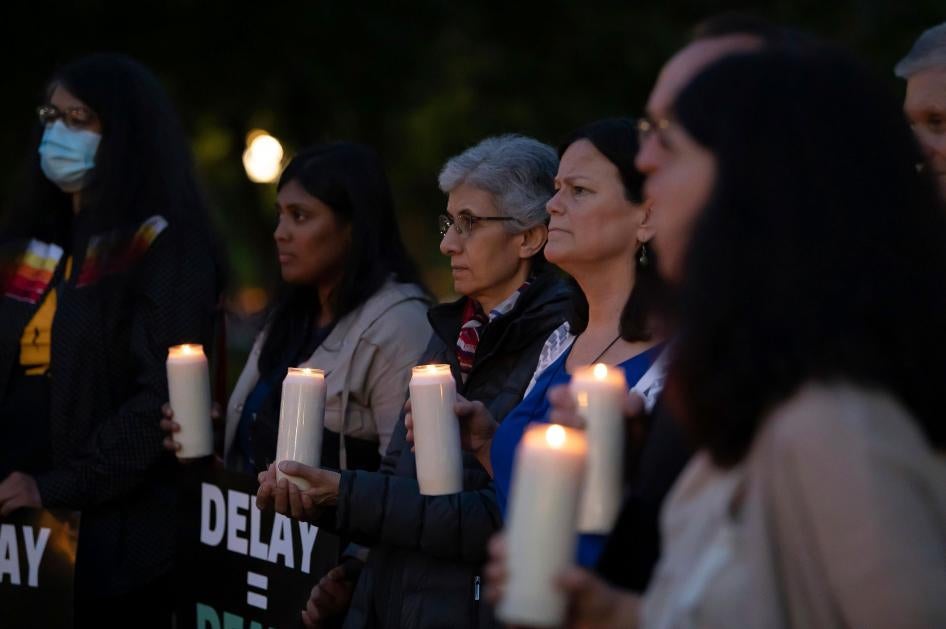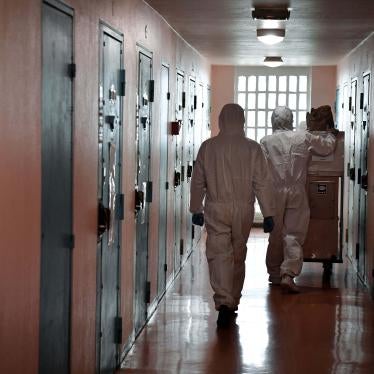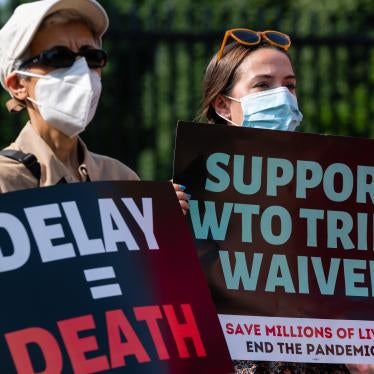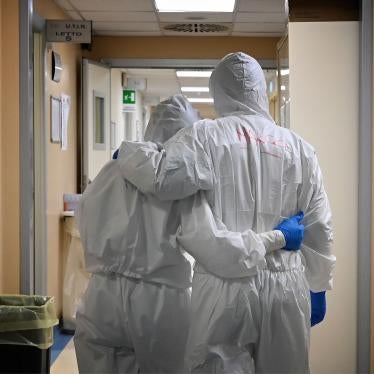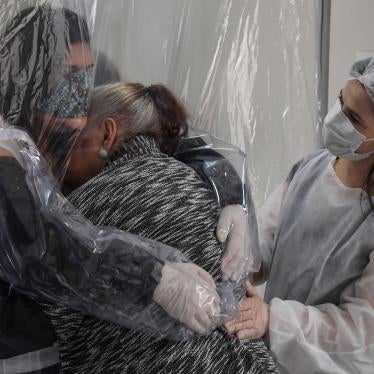Nearly 15 million people have died either directly or indirectly from Covid-19 in the past two years, new data from the World Health Organization shows. The devastation is likely even worse given that Covid-19 deaths have been largely undercounted by governments around the world. Human rights failures underlie this devastating death toll. Authorities have the knowledge, technology, and tools to prevent infections and deaths, but widespread policy failures are prolonging the pandemic and exacerbating its effects.
Billions of people, most in low- and middle-income countries, are living through year three of the pandemic without universal and equitable access to tests, treatments, and vaccines. Many also lack adequate social protection as high-income countries have thwarted a swifter and rights-based global response.
Global health experts have warned for years that inequalities in access to resources such as strong healthcare systems, health workers, medicines, and vaccines largely determine who will fall ill and die at the highest rate.
Thousands of people continue to die from Covid-19 daily, while billions who lack access to treatments and vaccines remain especially at risk of severe illness and death.
While 15 million dead is striking, it is not the only alarming figure. Despite safe and effective vaccines being available for over a year, only around 15 percent of people in low-income countries have received at least one dose of a Covid-19 vaccine.
Three years into the pandemic, some wealthy-country governments and pharmaceutical companies continue to undermine rapid and equitable access to affordable Covid-19 vaccines, therapeutic drugs, and tests. The pandemic has laid bare the dangers of having manufacturing capacity for lifesaving vaccines concentrated in a few countries where governments have refused to prioritize and mandate sharing intellectual property and technology for rapid, diversified, and global production.
The World Trade Organization still has not adopted a waiver of some intellectual property rules under the TRIPS agreement that India and South Africa proposed in October 2020. A new text introduced as an alternative to the waiver does not address intellectual property barriers and excludes tests and treatments.
Meanwhile, social protection, accessible health information, and accessible education remain critical, particularly for marginalized communities and people with health conditions that increase their vulnerability to Covid-19.
Ignoring the pandemic is not the same thing as ending it. These new figures are a wake-up call for action.

